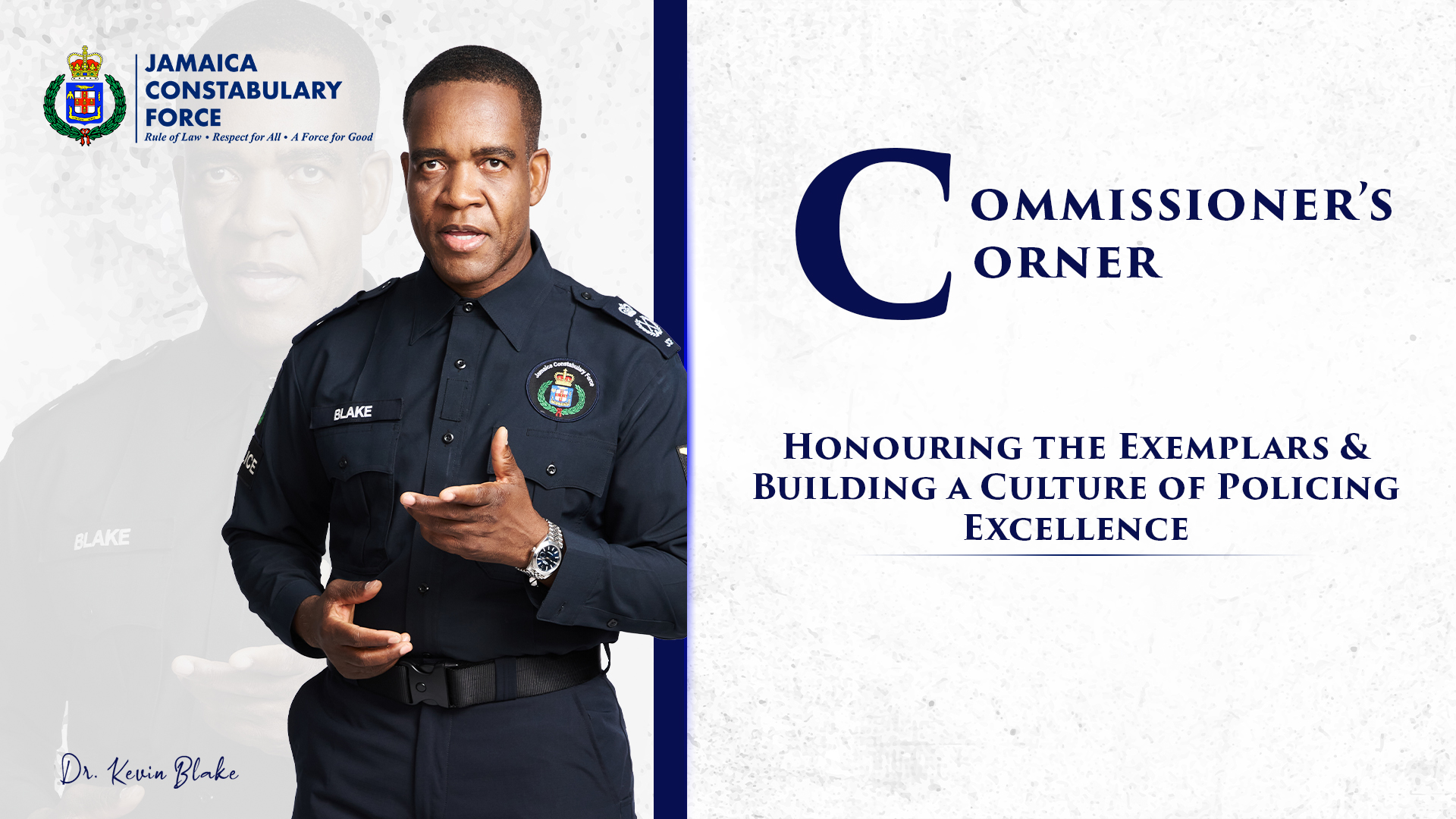
Honouring the Exemplars & Building a Culture of Policing Excellence
Let’s face it. We live in a time when criticism of institutions tends to travel faster than commendation. As such, it is worth pointing out that Police Commissioner, Dr Kevin Blake took the time to reflect on the upcoming LASCO “Saluting Our Heroes” Awards and capture the important truth that recognition is not ceremony. It is continuity. It is how institutions sustain morale, transmit values, and define their identity in a changing society.
While the awards ceremony itself has been postponed due to the impending winds and rains associated with Tropical Storm Melissa, the important sentiments expressed must definitely not be put off. Commissioner Blake begins by reflecting on the significance of the relationship between the JCF and the LASCO Chin Foundation.
“For over twenty-five years, the LASCO Chin Foundation has dedicated its effort in recognizing outstanding police officers. This initiative, quite appropriately dubbed Saluting Our Heroes, has allowed us to pause, to reflect, and to honour the men and women whose professionalism, courage, and selfless service define what is best about our Force and our country,” he said.
Commissioner Blake’s tone deliberately elevates the act of recognition to a statement of institutional philosophy. The LASCO awards are not a decorative annual ritual. They are an instrument of cultural transformation. Through them, the JCF draws attention to those officers whose conduct provides evidence of what policing in a democracy should look like; competent, compassionate, community-centred, and credible.
Within this framework, the Commissioner’s highlighting of the six top honourees is not merely acknowledgment. It is moral instruction. Each officer represents a distinct interpretation of service. Collectively, they model a philosophy of policing that is informed by empathy and civic imagination as much as by operational skill.
Constable Monique Bartley represents the social dimension of policing. Through her work with the Police Youth Club Movement, she is “laying the groundwork for long-term community peace and stability.” Her example demonstrates that safety is cultivated, not imposed. Corporal Stephen Smith transforms community engagement into practice, using sports as a bridge between citizens and the Force. His work demonstrates that connection is one of policing’s most powerful forms of prevention. Corporal Rojehn Holt, guided by the personal motto “Aspire, Inspire, Motivate,” invests in education and mentorship. His efforts reflect the Force’s evolving understanding that human development is a crime prevention strategy in its own right.
Detective Corporal Chadrick Williams stands as the operational counterpart to this social vision. His “operational excellence and specialized expertise” are a reminder that discipline and technical proficiency remain the cornerstones of professional policing. Constable Shantel Powell embodies the academic and civic reach of the modern officer. Her work in the “Peace in School Ambassador Programme” repositions the police as facilitators of social learning and peacebuilding. Detective Corporal Livey Evans, who places ethical conduct at the centre of his service, demonstrates that integrity is not a talking point but a lived standard. His outreach to youth through mentorship reaffirms that the badge holds moral weight.
The Commissioner uses their collective stories to make an implicit argument about leadership and example. “Every one of the 158 honourees has achieved something remarkable. You are leaders. You are ambassadors. You are standard-bearers of an institution that remains the backbone of our national security.” These are not symbolic gestures of praise. They are statements about accountability. Recognition, when rightly applied, is both a reward and a challenge and it calls the JCF to rise to the level of those it celebrates.
Through these reflections, Dr Blake presents a blueprint for institutional culture. Excellence must be named, and those who embody it must be seen. In a profession that bears the constant weight of scrutiny (and rightly so), recognition restores balance. It tells a story of endurance, intelligence, and compassion operating quietly behind the noise of headlines.
The JCF’s ongoing transformation depends on more than technology or structural reform. It depends on the kind of moral architecture built by officers like Bartley, Smith, Holt, Williams, Powell, and Evans. They represent an ethic of public service rooted in discipline and humanity. The Commissioner’s call is clear: their conduct should not be exceptional; it should be instructive.
As the LASCO Foundation marks twenty-five years of partnership, its collaboration with the JCF represents one of the most enduring examples of civic synergy in modern Jamaica. It connects corporate responsibility with national security, public service with private commitment.
His final call to action is quiet but unmistakable. He says, “Let us continue to serve with integrity and humility, always remembering that our purpose is greater than any individual recognition.” Jamaica’s peace will not be secured by weapons or policies alone. It will be secured by people – by men and women whose sense of duty is deep enough to outlast storms, literal and moral. The JCF’s honourees stand as living proof that such people already walk among us.







